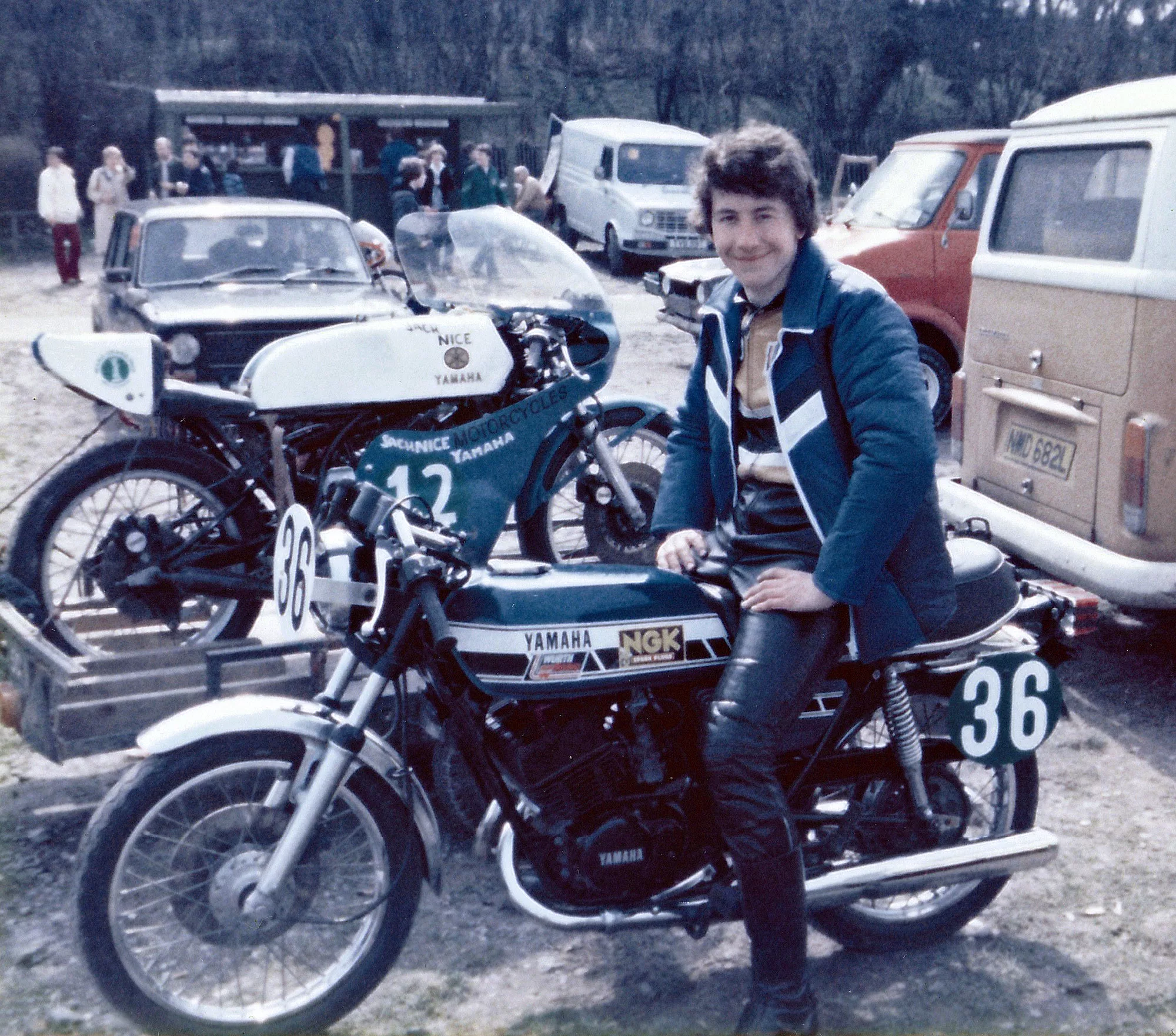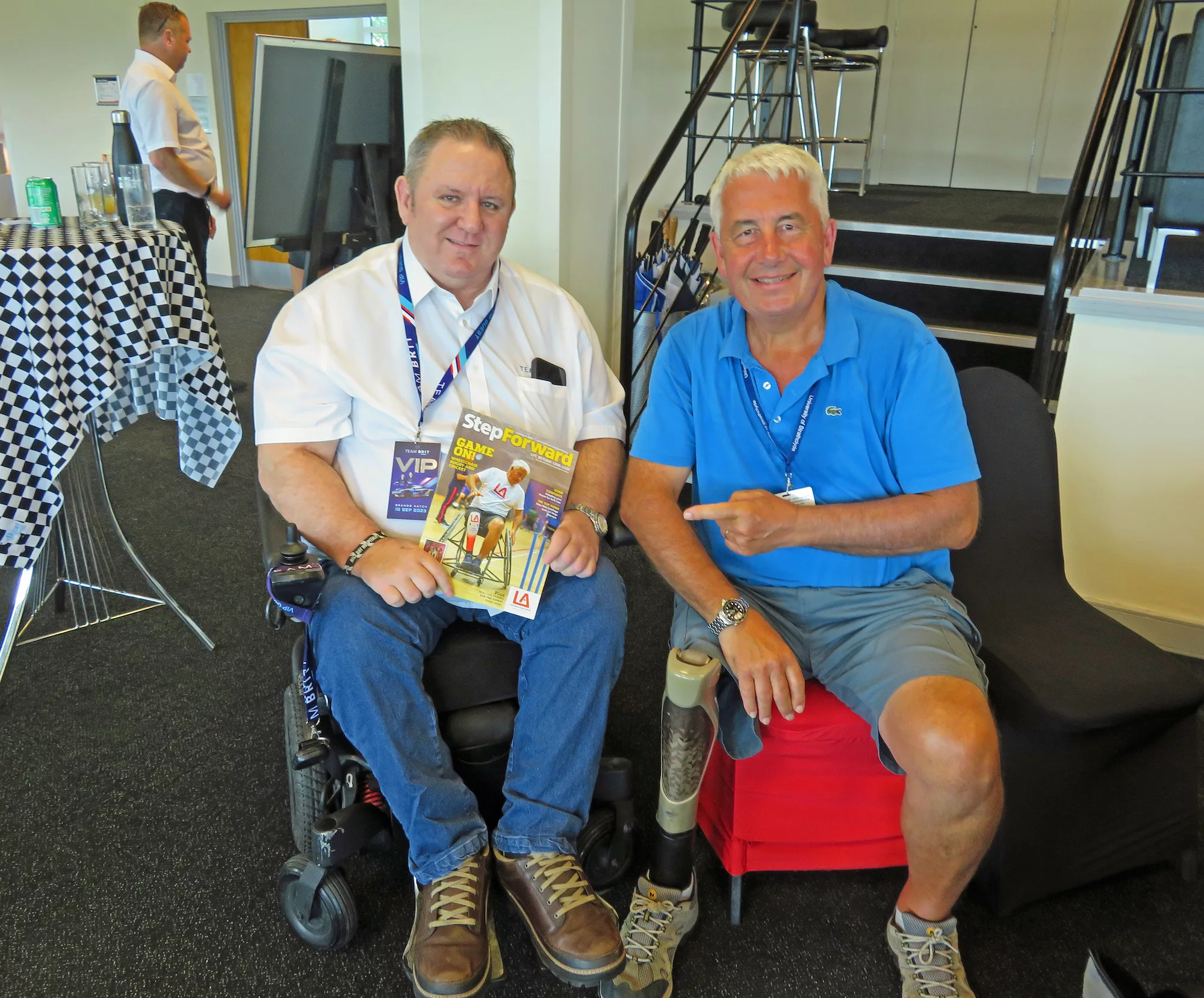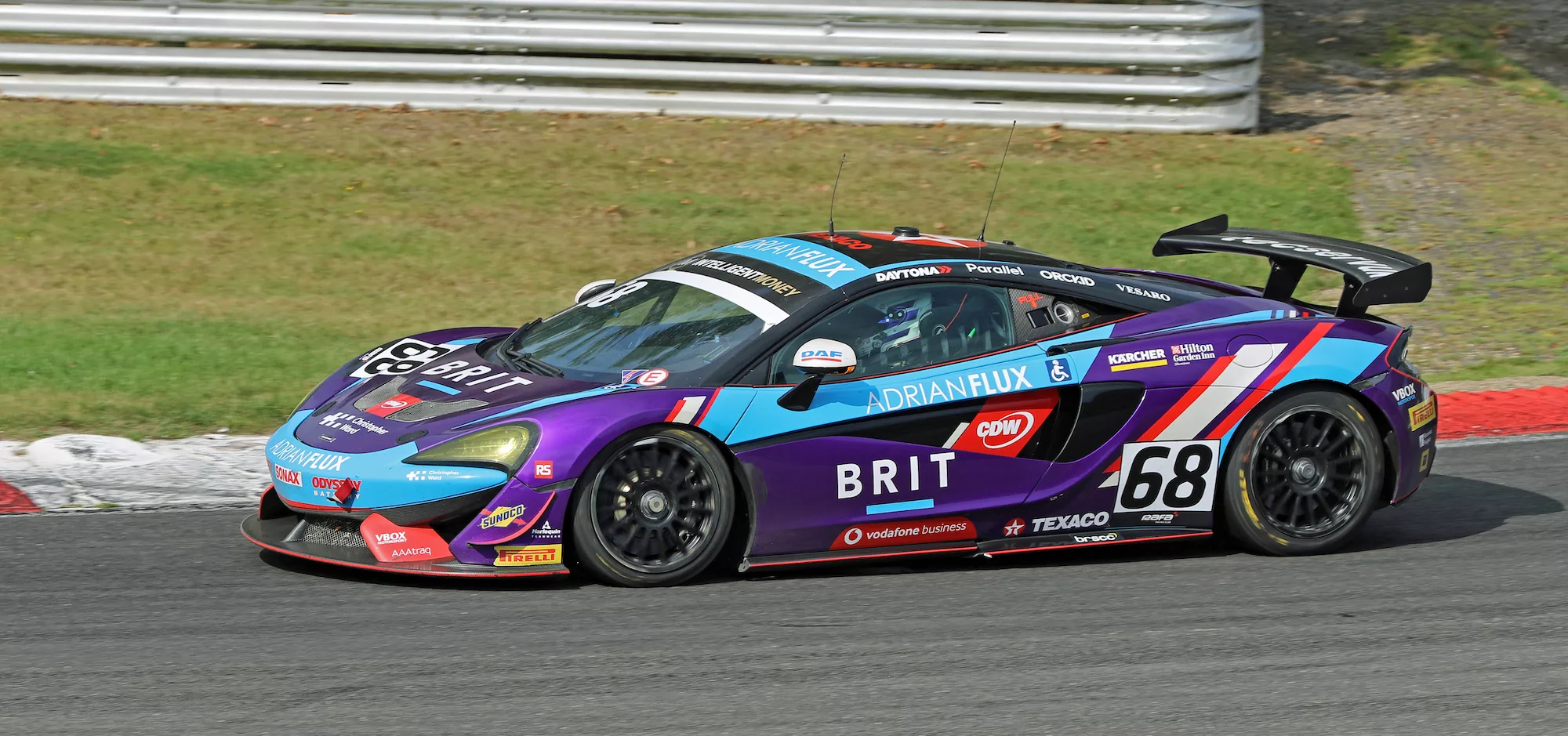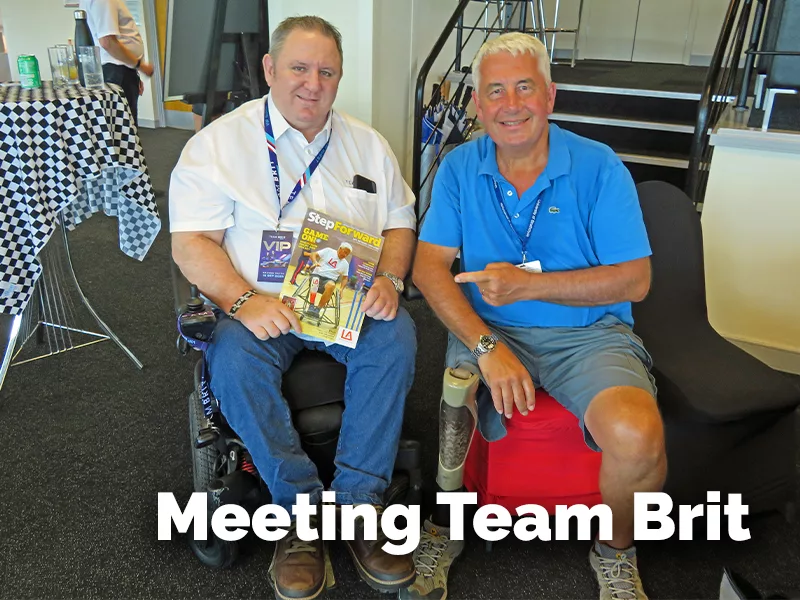Every now and again, something really unusual comes into my sphere of attention. Now I should explain at the outset that I’ve been a fan of motorsport since 1973, when I went to watch a non-championship Formula One race at Brands Hatch in Kent. I was hooked, and my enthusiasm for this area of sport remains to this day. And more than this, I actually raced motorcycles from 1976 to 1979, when my life changed as a result of serious road accident.

So my days a club-level racer were over, but I still to this day really enjoyed watching two and four-wheel motorsport. However, in all these years of my interest and with a few notable exceptions, there has been very little involvement by disabled people on the race track. Well, that is no longer the case, as I discovered on a recent trip back to Brands Hatch to watch the 8th round of the British GT Championship. This is a class of racing for what are often classified as ‘super cars’, McLarens, Lamborghinis, Mercedes AMG, Aston Martins and the like. One of the teams competing in the GT4 class is Team Brit and they are something special. But what is it that makes them special?
Team Brit’s message is: Changing Motorsport – Changing Lives. And they do this by offering opportunities for disabled people to compete, and by demonstrating what can be achieved by disabled people through motorsport. For example, they have created the world’s most advanced hand control technology to enable disabled drivers to race competitively. But it should be emphasised that Team Brit is not a charity, they are a competitive racing team. This means that they race against teams of able-bodied drivers on a totally level playing field, and that’s something that almost no other sport can offer. I’ve been following their progress in recent years and I was lucky enough to be invited to meet Dave Player, the Team Principal at the Brands Hatch event where they were competing with their GT4 McLaren 570S. Dave explained some of the many challenges that exist with running a top-flight racing team, not least of which is the work with commercial partners and sponsors. Just look at the number of different companies whose logos feature on the Team Brit McLaren’s sleek bodywork! I was also privileged to meet some of the drivers that Team Brit supports in a number of different championships, designed to provide competitive racing opportunities for their drivers at every level of experience.

I am hoping that there may be a future opportunity to link the work that the Limbless Association undertakes in promoting lives after limb loss, with the pioneering motorsport development that Team Brit is delivering today. I have seen the work that BLESMA has undertaken in recent years where they have been able to support a member race in the Mini Challenge, one of the leading one make championship in British motorsport. It would be something special if we could create a sharper focus on this exciting sport for a wider amputee audience.
Two of the Team Brit drivers that I met at Brands Hatch were amputees and they explained the particular challenges that they have to manage whilst racing. Most importantly, they cannot wear a prosthesis whilst competing in a race. This has to do with essential safety requirements that specify that a driver must be able to exit from the car within a very tight time schedule, something like no more than nine seconds! The amputee racing drivers are therefore reliant on state-of-the-art hand controls to accelerate, steer and brake the GT race cars, and having seen the Team Brit McLaren in action around Brands Hatch, I can testify to their very impressive performance!

As an ex-motorcycle racer myself, I have some understanding of how exciting motorsport can be. In fact, I would venture to suggest that there is nothing else quite like it!
Blog post written by LA Chair of Trustees David Rose.

